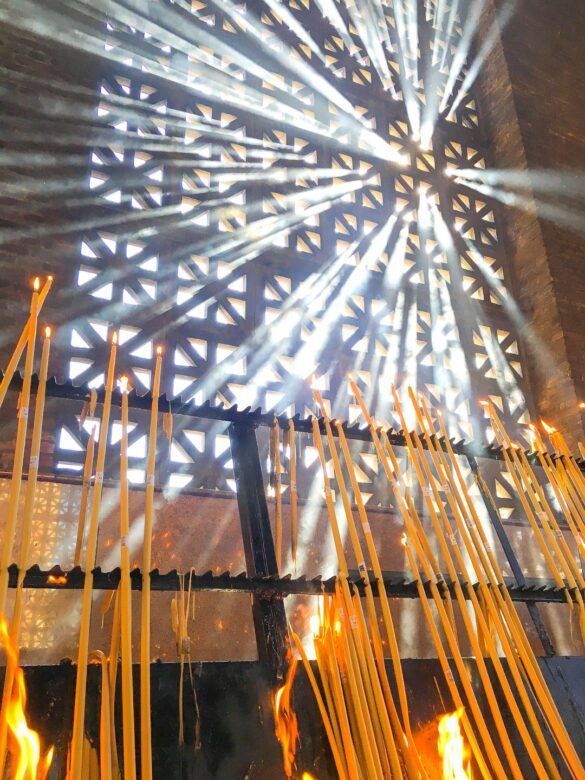Religious rituals have been a key part of human civilization for thousands of years. They hold a significant amount of power and symbolism for those who participate in them, whether they are performed in a grand cathedral, a small chapel, a mosque, or a temple. These rituals serve as a way for individuals to connect with their beliefs, to feel closer to their higher power, and to create a sense of community with others who share their faith.
In this blog post, we will explore the symbolism and power of religious rituals, delving into the reasons why they hold such a strong influence over people’s lives and why they continue to be practiced to this day.
One of the key aspects of religious rituals is their symbolism. From the lighting of candles to the act of prayer, each gesture and action has a deeper meaning that is often rooted in the history and traditions of a particular faith. For example, in the Christian tradition, the act of taking communion symbolizes the believer’s connection with the body and blood of Christ. In Hinduism, the act of offering flowers and incense during puja rituals is seen as a way to honor the divine presence of the gods.
These symbols serve as a physical representation of the beliefs and values of a faith, allowing individuals to engage with their spirituality in a tangible way. They provide a sense of continuity with the past, connecting believers with the generations that came before them and the rituals that have been practiced for centuries.
The power of religious rituals lies in their ability to create a sense of sacred space and time. When individuals participate in a ritual, they are entering into a different realm of existence, one that is separate from the everyday world. This allows them to focus on their spiritual beliefs and connect with their higher power in a more profound way.
Rituals also have the power to create a sense of community and belonging. When individuals come together to participate in a religious ceremony, they are united by a shared set of beliefs and values. This sense of unity can be incredibly powerful, providing individuals with a support system and a sense of belonging that can help them navigate life’s challenges.
Moreover, religious rituals can also have a transformative effect on individuals. By engaging in these practices, believers are able to deepen their connection with their faith and experience a sense of spiritual growth and renewal. This can be especially important during times of hardship or struggle, providing individuals with a sense of comfort and guidance that helps them navigate difficult situations.
In addition to their symbolic and transformative power, religious rituals also serve practical purposes within a faith community. They can help to reinforce social norms and values, provide a sense of order and structure to life, and offer a way for individuals to express their devotion and commitment to their beliefs.
However, it is important to recognize that not all religious rituals hold the same power and significance for everyone. Different individuals may have different interpretations of the symbolism of a ritual, or may find that certain practices hold more meaning for them than others. This diversity of experience speaks to the richness and complexity of religious rituals, and the ways in which they can be personalized and adapted to meet the needs of individuals.
In conclusion, the symbolism and power of religious rituals are an essential part of human spirituality and faith. They serve as a way for individuals to connect with their beliefs, create a sense of community, and experience a profound sense of sacredness and transformation. By engaging in these practices, individuals are able to deepen their connection with their higher power and find meaning and purpose in their lives. Ultimately, religious rituals continue to hold a significant influence over people’s lives, providing them with a sense of comfort, guidance, and spiritual renewal that is essential for navigating the complexities of the human experience.
